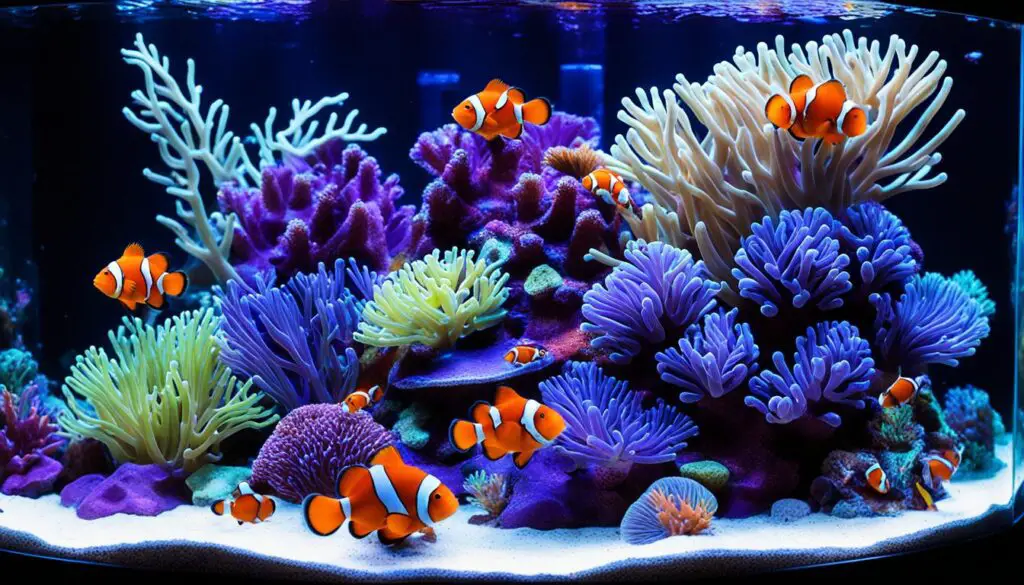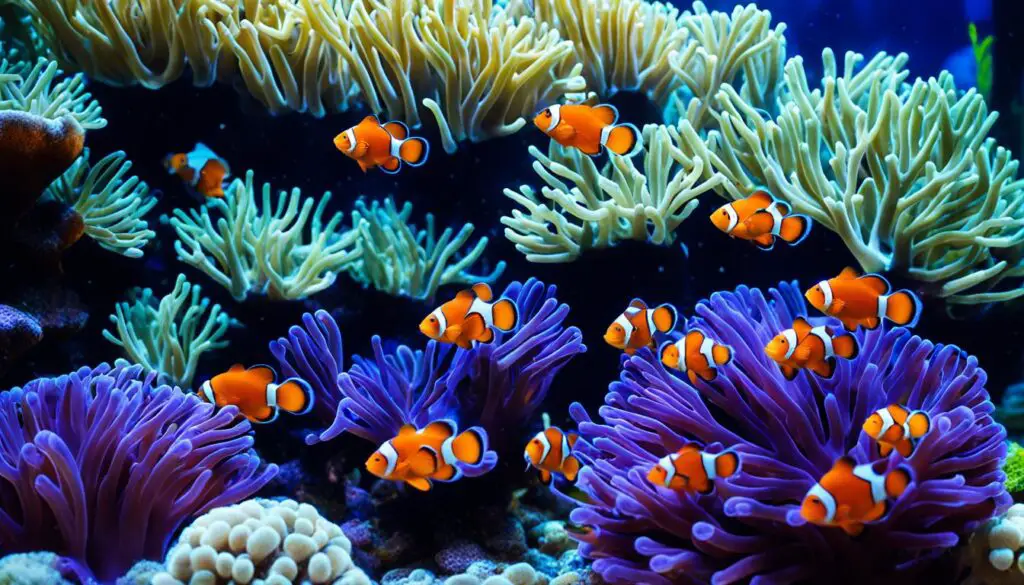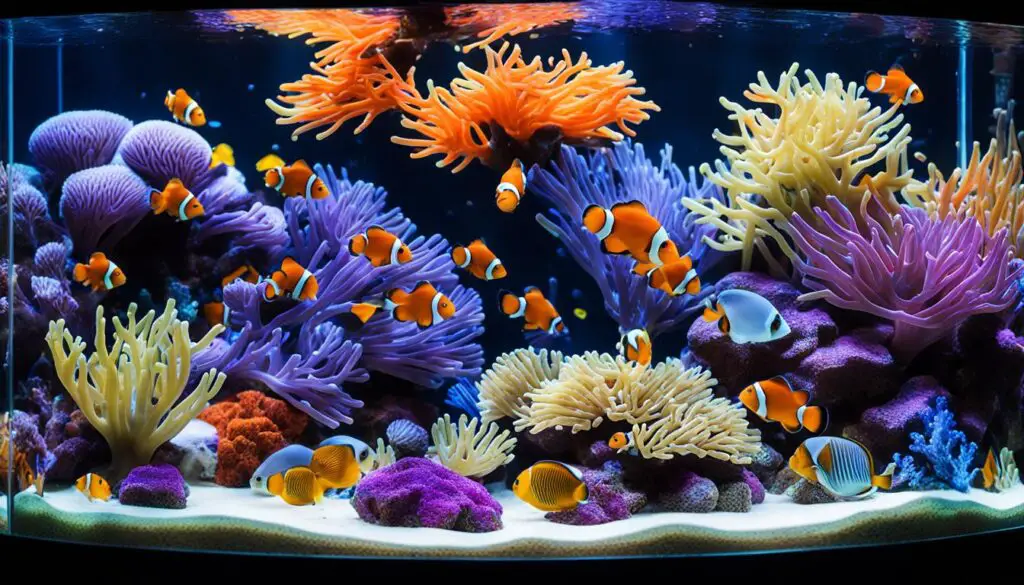Are Guppies Aggressive

Introduction
Are Guppies Aggressive: Guppies, one of the most popular and widely kept aquarium fish, have long captured the fascination of aquarists and hobbyists alike. Their vibrant colors and intricate patterns, combined with their relatively low maintenance requirements, make them an attractive choice for both novice and experienced fish keepers.
As guppy behavior can be influenced by various factors, such as their environment, social dynamics, and individual personalities. Guppies (Poecilia reticulata) are known for their peaceful nature, and in general, they are considered to be community-friendly fish. They often coexist harmoniously with other species in community tanks, exhibiting minimal signs of aggression.
Nonetheless, like any other species, there can be exceptions. Some guppies may display territorial or aggressive behavior under certain conditions. Understanding the factors that influence guppy behavior is essential for maintaining a healthy and balanced aquarium environment.
We will delve into the intricacies of their behavior, looking at the various factors that can influence their interactions with other fish and their own kind. By shedding light on this aspect of guppy life, we aim to provide valuable insights for aquarium enthusiasts and foster a deeper understanding of these colorful aquatic creatures.

Can male guppies be aggressive towards each other?
Male guppies can get territorial when it comes to mating, so keeping 2:1 makes it so they aren’t too aggressive with any of the others. Male only tanks are possible, however, you must have ample space, as well as hiding places to limit the amount of harm the fish will do to each other.
Male guppies, known for their striking colors and elegant fins, are generally not aggressive towards each other in the same way that some other fish species might be. These fish are often kept in community tanks with other peaceful species due to their typically calm and sociable behavior. However, male guppies can exhibit a form of aggression known as “nipping” or “fin nipping.”
This behavior can occur when there is an overabundance of males in a confined space or when there is a scarcity of females. Male guppies may compete for the attention of females and engage in fin-nipping to establish dominance or territory. Nipping usually involves the nipping of the fins of rival males, and it can lead to physical harm, stress, or damage to their beautiful fins.
To mitigate this aggression, it’s crucial to maintain a balanced male-to-female ratio and provide plenty of hiding places and plant cover in the aquarium. These measures can help reduce competition and aggression among male guppies, ensuring a more harmonious coexistence in the tank. While occasional disputes may arise, their beauty and overall peaceful nature make male guppies a favorite choice for aquarium enthusiasts worldwide.
What causes aggression in fish?
Aggressive behavior can derive in fish species due to territory, sex specific selection and genetic variation. There is no specific fish species who display invasive behavior. Almost all the fish are aggressive sometimes in their lives depending on their surroundings.
Aggression in fish, like in many other animal species, can be attributed to various factors that influence their behavior. Understanding these triggers is crucial for maintaining a harmonious aquarium environment and ensuring the well-being of the fish. Some key factors that can lead to aggression in fish include:
- Territorial Instincts: Fish often display aggression when defending their territory. This can be particularly true for species that establish territories within the aquarium. When other fish encroach upon their space, territorial fish may become territorial and engage in aggressive behaviors to protect their area.
- Mating and Breeding: During the breeding season, many fish species may become more aggressive, especially males competing for the attention of females. This competition can lead to confrontations and displays of aggression.
- Overcrowding: Overcrowding in an aquarium can lead to increased competition for resources, such as food, hiding spots, and swimming space. Fish may become stressed, which can escalate into aggressive behavior.
- Gender Imbalance: A disproportionate ratio of males to females in a mixed-gender tank can intensify aggression, particularly in species where males compete for the attention of females.
- Inadequate Hiding Places: Lack of suitable hiding spots or plant cover can leave fish feeling exposed, increasing stress and the likelihood of aggressive encounters.
- Incompatible Species: Mixing fish species with different temperaments and territorial behaviors can lead to aggression, as they may not coexist peacefully.
- Water Quality and Poor Husbandry: Suboptimal water conditions, such as poor water quality, inadequate filtration, or incorrect temperature, can stress fish and trigger aggression.
To maintain a peaceful aquarium, it’s essential to research the specific needs and behaviors of the fish species in the tank, provide adequate space and resources, and monitor their interactions to prevent and address potential aggression.
Are male guppies aggressive to females?
During mating season, male guppies either attract females with their brightly-colored bodies or harass smaller females into mating by nipping and chasing them. The females usually only mate with the most attractive males to ensure the production of high-quality offspring.
Male guppies are not inherently aggressive towards females, but their behavior can sometimes be misconstrued as aggressive due to their strong drive to mate. Male guppies are known for their colorful and flamboyant appearance, which they use to attract females. This courtship can occasionally appear forceful or persistent, but it’s primarily a part of their natural reproductive instincts.
Male guppies will often display their vibrant colors, swim energetically, and pursue females in an attempt to court them. They may even nip at the females’ fins or bodies as a form of encouragement. While this may seem aggressive, it’s a way for males to assess a female’s readiness to mate. If the female is not receptive, she will typically evade or escape from the persistent male.
In a well-maintained and adequately sized aquarium with multiple females, the potential for harm due to male aggression is usually minimized. It’s crucial to ensure there is an appropriate male-to-female ratio to prevent a single female from being overly harassed. Providing plenty of hiding places and plants can also give females a chance to escape male attention when needed.
Male guppies are not intentionally aggressive towards females, but their mating behavior can sometimes be mistaken for aggression. Maintaining a balanced and stress-free environment is essential for harmonious coexistence between male and female guppies.
How do you calm a stressed guppy?
Ways to Reduce Fish Stress
Change water frequently to keep nitrate and ammonia levels low. Try adding water conditioners like API Stress Coat Aquarium Water Conditioner, which is formulated to reduce fish stress by 40% by removing dangerous toxins.
Calming a stressed guppy requires a gentle and attentive approach. These small, vibrant fish are known for their sensitivity to changes in their environment, and stress can manifest in various ways, such as faded colors, erratic swimming, or hiding. To help a stressed guppy relax and regain its vitality, several strategies can be employed.
First, ensure that their tank water is clean and properly maintained. Guppies are susceptible to water quality issues, and poor conditions can stress them. Regular water changes, maintaining suitable water parameters, and using a good filtration system are key.
Additionally, create a comfortable environment by providing hiding places and plants for them to retreat to. A stressed guppy often seeks shelter to feel secure. Maintaining a consistent lighting schedule and avoiding sudden temperature fluctuations can also be helpful.
Feeding them a balanced diet with high-quality guppy food is essential. Malnutrition can contribute to stress, so ensure they receive proper nutrition.
Lastly, minimize disturbances and loud noises around the tank to provide a calm atmosphere. Sometimes, a little patience is all it takes for a stressed guppy to gradually regain its composure. By addressing their needs and maintaining a tranquil environment, you can help your guppy relax and thrive.
What do guppies do when scared?
When scared, guppies will exhibit shoaling behaviour in which they group together in defense.
When guppies, small and colorful freshwater fish, encounter a frightening or stressful situation, their behavior undergoes distinct changes. Guppies are known for their remarkable adaptability, and their responses to fear are no exception. Typically, when scared, guppies display various avoidance behaviors. They may dart and swim rapidly to evade the perceived threat.
Guppies often change their coloration when frightened. Their vibrant hues can fade or become paler, serving as a form of camouflage to blend in with their surroundings. This adaptive color change helps them avoid detection by potential threats. Another response to fear in guppies is seeking refuge in sheltered areas, such as rocks, plants, or crevices. This behavior provides them with a physical barrier between themselves and the perceived danger.
In addition to these immediate responses, guppies can also experience long-term effects of stress, affecting their overall health and reproduction. Prolonged exposure to stressful conditions can impact their growth, reproductive success, and lifespan. Guppies, being small but resilient creatures, employ a combination of rapid movement, color changes, and seeking shelter to cope with fear and evade potential threats in their aquatic environment.
Are guppies generally considered aggressive fish?
Guppies are not generally considered aggressive fish. In fact, they are often classified as one of the more peaceful species in the aquarium hobby. These small, brightly colored freshwater fish are known for their social nature and are typically compatible with a wide range of other community fish.
Male guppies can display territorial behavior, especially in densely populated tanks, where they might compete for the attention of females. However, this aggression is relatively mild compared to many other species, and it rarely leads to serious harm. In most cases, the displays involve fin flaring and chasing rather than physical combat.
Female guppies, on the other hand, are generally even more peaceful and rarely engage in aggressive behavior. They tend to establish hierarchies based on size and dominance, but these interactions are usually subtle and non-damaging.
However, it’s important to provide them with a suitable environment, including ample hiding spots and proper tank mates, to ensure a harmonious and stress-free community.
Can female guppies be aggressive too?
Yes, female guppies can exhibit aggression as well, although it tends to be less frequent and less intense compared to their male counterparts. While male guppies are known for their territorial behavior and flashy displays to attract mates, females also have their own social dynamics.
In female guppy groups, hierarchies can form based on factors like size, age, and dominance. More dominant females may assert themselves by chasing or nipping at subordinates, particularly when resources like hiding spots or food are limited. This behavior is a natural part of their social structure and is influenced by factors such as the size of the tank and the availability of hiding places.
They are more likely to engage in subtle displays of dominance rather than full-fledged territorial battles. Nevertheless, providing a well-structured environment with ample hiding spots and evenly distributed resources can help minimize potential conflicts among female guppies and promote a harmonious community.
Can overfeeding lead to aggression in guppies?
Overfeeding can indeed lead to aggression in guppies. These popular freshwater fish, known for their vibrant colors and lively behavior, may exhibit unexpected aggression when provided with excess food. When guppies are overfed, it disrupts the delicate balance of their natural feeding patterns and can result in heightened competition among them.
Additionally, overfeeding can lead to obesity and related health issues in guppies. This not only affects their physical well-being but can also contribute to stress and heightened aggression within the community. Overfed guppies may become more irritable and prone to conflicts, as they vie for limited resources within their environment.
To maintain a harmonious and healthy guppy community, it’s essential to provide them with an appropriate and balanced diet. Feeding schedules should be regulated, taking into consideration their dietary needs and the size of the community. By ensuring they receive the right amount of nutrition, aquarists can help prevent unnecessary aggression and promote a thriving, peaceful environment for these charming fish.

Conclusion
We have learned that guppies, in general, are renowned for their peaceful and sociable nature. They thrive in community tanks and exhibit minimal aggression towards other fish species. The vibrant, graceful, and hardy guppy is indeed an ideal choice for both novice and experienced aquarists seeking a tranquil and visually appealing aquatic environment.
However, it is essential to acknowledge that individual variation exists within guppy populations. Some guppies may exhibit territorial or aggressive behavior, often related to factors such as overcrowding, gender imbalances, and competition for resources. Understanding and addressing these underlying factors is key to maintaining a harmonious aquarium ecosystem.
Guppies are not inherently aggressive, and their reputation as a peaceful community fish is well-founded. Yet, responsible aquarium management, including maintaining appropriate tank conditions, monitoring social dynamics, and providing adequate space, is essential to mitigate potential aggression. By balancing their needs and fostering a suitable environment, aquarists can enjoy the delightful company of guppies and appreciate their beauty without being overly concerned about aggression issues.



